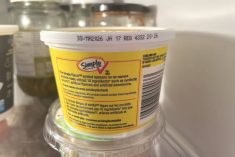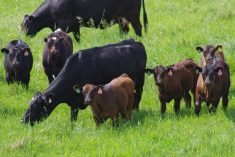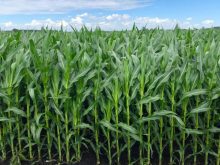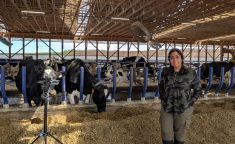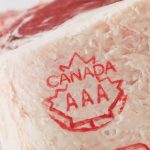Imagine a supermarket where every product is labelled by how healthy it is – green for foods deemed best for you and red for those that aren’t.
Then imagine another store, where the ratings are instead based on whether the product was produced according to preferred environmental practices.
Both of these (one is called Nutri-Score and the other Eco-Score) are being tested across Europe and farmers here should take note, says well-known food expert David Hughes, also known as “Dr. Food.” They’re just two of many environmental and health schemes being pushed by a host of different groups, said the emeritus professor of food marketing with Imperial College London.
Read Also
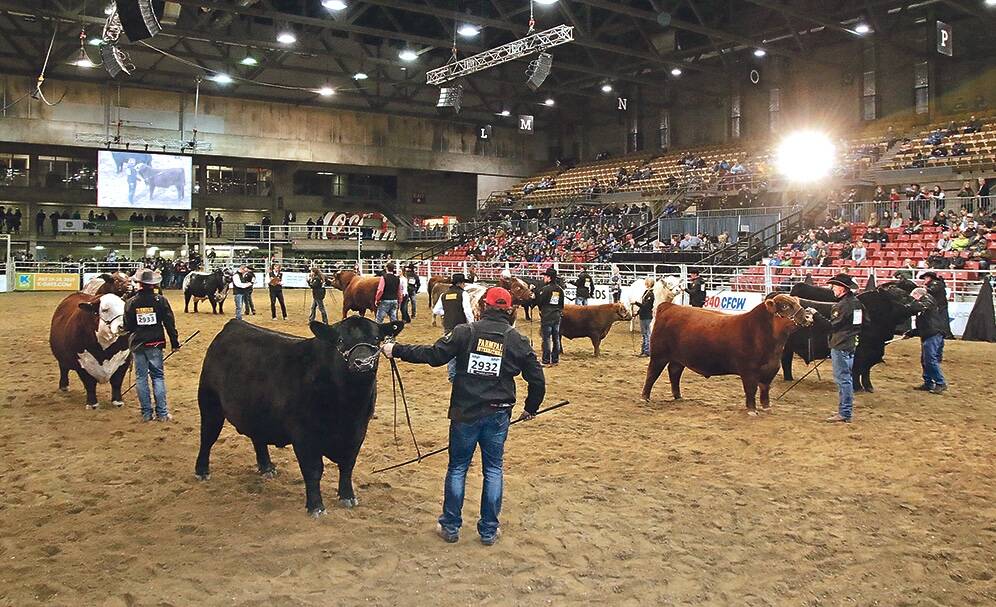
Farmfair International boosts accessibility with weekend schedule shift
Farmfair International is changing its scheduling format to include the weekend and hopefully attract even more attendees.
“Who’s pushing the whole notion of the power of the plate? I think it comes from all directions,” Hughes said during a recent virtual conference put on by Farming Smarter.
“One is from consumers. Two is from the public sector, whether it be national or international. Three is increasingly from the food industry itself and four, of course, from activists.”
[RELATED] Alberta cattleman right at home at UN climate change conference
Like it or not, agriculture is a front-and-centre issue in the effort to reduce greenhouse gas emissions and an ever-growing number of countries are making huge promises on that front, said Hughes.
“One hundred and five countries pledged to cut methane emissions by 30 per cent (from 2020 levels) by 2030,” he said. “No one talked to farmers and asked, ‘Can we do this?’ because I’m not sure we can.
“We’ve put ourselves in the position where the public sector – politicians – have made big promises on behalf of the agriculture and food industry without really asking us.”
And these sorts of promises are going to be very hard to keep, said Hughes, pointing to the EU’s Green Deal.

“This was put together prior to 2019 when our world, economically and to some degree socially and politically, was in a bit better shape than it is now,” he said. “The one item that takes the attention is that the EU was saying by 2030 a quarter of the land will be in organic farming. It’s by reducing the use of chemical pesticides by half and antibiotics for animal breeding by 50 per cent, plus a 20 per cent reduction in fertilizer use.
“There’s no way you’ll get anywhere near that.”
Hughes pointed to two controversial government moves on opposite sides of the globe.
Last year, the Dutch government announced it would spend billions to slash nitrous oxide emissions in the country, which is the most intensive livestock producer in Europe, by paying farmers to relocate or by buying out their farms.
Although pitched as a voluntary program, Hughes called it “a government land grab.”
“They’re not offering to buy,” he said. “If you farmers don’t deliver on EU emission targets that we have set within our policy, then we will forcibly buy your farms and we will run it ourselves or put in place managers who will take note of the EU emission targets.”
In New Zealand, livestock producers are equally upset, in this case because of a levy on methane emissions from cattle and sheep that’s been dubbed a “fart tax” although burps and belches from ruminants produce the bulk of emissions.
“Farmers are saying this is going to rip the guts out of small town New Zealand farmers,” said Hughes. “Remember that New Zealand has 26 million sheep and six million cows. They only have five million people, for goodness’ sake. Again, this is heavy-duty handling to try to shift the dial environmentally.”
However, the U.K. has a more “laid-back” approach through a proposed program (albeit currently on hold) that would pay farmers to boost their stewardship efforts.
“It’s public money for public goods,” said Hughes. “It’s saying, ‘OK, if you look after the environment, you look after your hedges, you plant more tree etc., then we will pay you to do so.’”
Going back to the European ‘red light, green light’ labels, Hughes said he wonders if they’re not, at least in part, the result of the ag industry failing to tell the story of its environmental efforts and the nutritional value of the food it produces.
“In the farm world, particularly in fruits and vegetables and to some extent, too, in livestock and meat, I think we’re particularly poor at showing how healthy our products are,” he said.
“Go to a Safeway and go into the fruit and veg department. The assumption is everybody knows how healthy those products are.
“We don’t mention all the immunity benefits, energy benefits and heart benefits. We’ve got to be so much better at ringing the bells of the health benefits of our products.”




